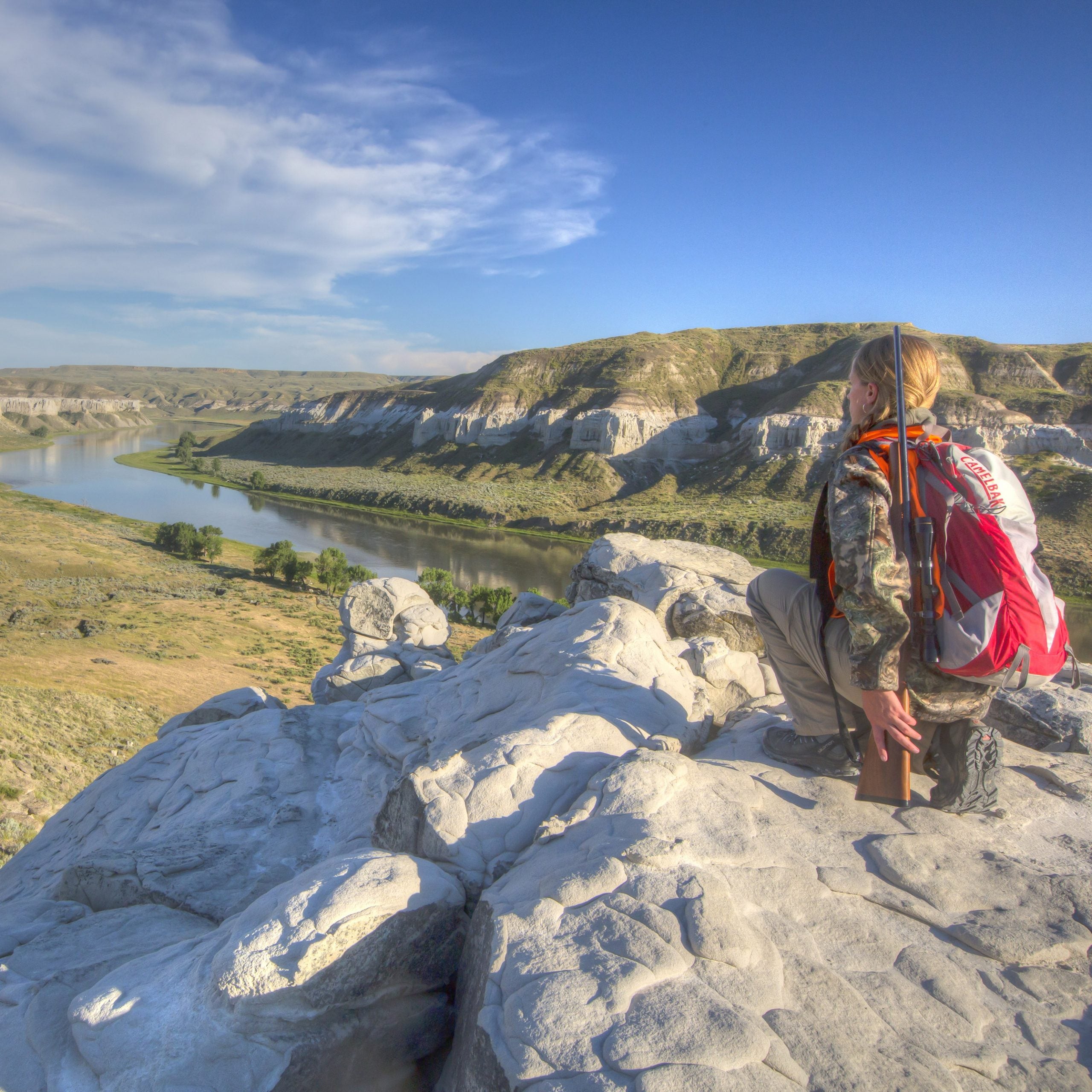States should manage the public lands within their own borders, right? It sounds like one of those common sense, local management, small government things that will be in the citizensÔÇÖ best interests.
ItÔÇÖs actually exactly the opposite.
That's because the federal government is mandated to manage public lands for . So for-profit enterprises, like logging and drilling, need to co-exist with folks who want to hike, bike, and play on those lands, as well as the wildlife that already lives there.╠řIn contrast, states are mandated to manage their lands , which means╠řlogging and drilling take precedent over public access and╠řenvironmental concerns.
The difference really is that simple, and it's really all you need to know to understand why federal management is better for our wild places than state management. But╠řthe ramifications of that difference are incredibly far reaching.
Budgets and Bankruptcies
As 2017 has demonstrated╠řpainfully well, fighting wildfires can be incredibly expensive. It can even put a dent in the federal governmentÔÇÖs massive coffersÔÇö$300 million had to be written into the Hurricane Harvey relief bill to help the U.S.╠řForest Service supplement its fire-fighting budget this year. The feds can absorb that cost, but what would happen if a state government got suck with such a bill? Go back to that for-profit mandate and itÔÇÖs easy to see why a state would have to sell off vast tracts of what was previously public land in order to cover those costs.╠ř
Increased Costs
Currently, our nationÔÇÖs 640 million acres of public land cost the average taxpayer , spread out among citizens╠řof╠řall 50 states. But╠řbecause╠řmost of that land lies in sparsely populated western states, shifting management of those vast swaths of land to the states╠řwould disproportionately affect those of us who live in the West.╠ř
The increased cost of assuming public lands management in Utah, for instance, would be $154╠řmillion annually. ThatÔÇÖs an additional $54 in taxes the state would need to collect from each of its three million residentsÔÇöevery year.╠ř
Lower Revenues
Western states with large reserves╠řof public land currently profit immensely from╠řthat land, without having to pay to manage it. The federal government disperses profits from its lands to local communities in the form of Payments in Lieu of Taxes, a cut of the mineral revenue generated on the lands within their╠řborders, and through other similar mechanisms. Wyoming, for instance, earns from the federal land within its borders, while Utah gets $185 million each year.
If Utah assumed management of its federal lands, as many of its politicians want,╠ř mentioned above. And thatÔÇÖs╠řaccounting done by the anti-public lands politicians.
Decreased Access
That multiple-use mandate on federal lands means that you, I, and our fellow citizens are free to enjoy all of those 640 million acres of public land. We donÔÇÖt have to just go camping in national parksÔÇöwe can go camping (or enjoy any other outdoor activity) in national forests, on BLM land, or pretty much wherever else we please.
That is not the case with state land. States are not mandated to allow access, and they often donÔÇÖt view their lands as a public resource. Instead, through for-profit management priorities, land is treated as╠ř╠řto turn a profit. Is that profit derived from a logging lease? Then you wonÔÇÖt be able to camp there anymore. , but you get the idea.╠ř
Less Local Input
While national policy for lands management is set╠řin Washington D.C., thereÔÇÖs significant room for local interpretation, and there are processes in place designed to╠řsolicit local input. High-profile laws like , , and , for example, all include significant mandates for gathering information from╠řof locals when it comes to management decisions.
Granted, this kind of╠řlabyrinthine federal bureaucracy slows decision making to a crawl. But itÔÇÖs that╠řbureaucracy that ensures equitable decision making and protects the individual's voice. States have no such deeply entrenched mechanisms when it comes to land management, and are .╠ř
Think about this at the hyper-local level. Due to its management priorities, itÔÇÖs essentially impossible for the federal government to shut down your favorite hunting spot on Forest Service land in rural Idaho. On the other hand, if the state government managed that land, Boise could sell it to a developer without asking anyone for permission, and thereÔÇÖd be condos where there used to be deer by the following╠řfall.
Decreased State Autonomy
The whole point of transferring management of public lands is to give states more authority over the lands within their borders, right? Well, found such╠řtransfers might have the opposite effect. How? ItÔÇÖs extremely unlikely that a state government could afford to manage all that land without some degree of federal assistance. And federal money always comes with strings attached. Federal highway funding, for instance, is used as a tool by the╠řfederal government to impose its road-safety measures on state governments.
Some politicians are suggesting that states could simply take over management of lands within their borders, without an outright transfer of ownership, as an expedient. But, state management of federal land would also force local governments to comply with federal laws from affirmative action to the Freedom of Information Act to complicated procurement processes. Those may not sound like a huge deal, but would require additional agencies, and increased costs.╠řWyomingÔÇÖs own government concluded that assuming management of public lands within its borders would cost more money than itÔÇÖs worth as a result.


